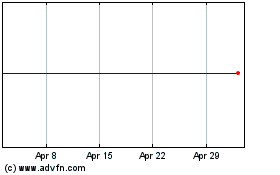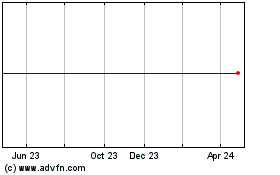By Sam Schechner
PARIS -- The White House parted with other governments as well
as technology firms over the policing of the internet as it
declined to endorse an international pledge to counter the spread
of terrorist content online.
The Christchurch Call, an accord adopted by nine countries, was
signed Wednesday in response to the attack on mosques in
Christchurch, New Zealand, that left 51 people dead. The three-page
agreement sponsored by New Zealand Prime Minister Jacinda Ardern
and French President Emmanuel Macron calls for measures to reduce
the use of internet services to disseminate violent extremist
content without undermining free expression online.
The White House on Wednesday said that while the administration
agrees with the "overarching message" of the initiative, it isn't
"currently in a position to join the endorsement."
Separately, the White House, in a tweet, asked Americans to
share stories of suspected political bias through a "tech bias
story sharing tool."
"Social media platforms should advance freedom of speech,"
according to the introduction of a form linked to by the White
House tweet. "Yet too many Americans have seen their accounts
suspended, banned, or fraudulently reported for unclear
'violations' of user policies."
The U.S. stance points to how ideological differences on the
role of government and primacy of free expression are undercutting
attempts to rein in extreme content on social-media sites,
including even terrorist propaganda.
The accord incorporates commitments to act from governments and
such tech giants as Facebook Inc., Twitter Inc. and Alphabet Inc.'s
Google, owner of YouTube. The promises include the creation of a
crisis plan for sharing information in the event of a terrorist
attack and the companies' taking steps to limit how live streaming
can be used to spread violent extremism. Facebook's streaming
feature was used to broadcast the Christchurch attack in March.
Canada, the U.K., Jordan and Indonesia were among the countries
that endorsed the document, and French officials said seven others,
including Germany, Japan and India, had indicated support for the
initiative.
The U.S. has long held an expansive view of free expression and
press freedom. On Wednesday, the White House said it has encouraged
tech companies to do more to enforce their own rules banning the
use of their platforms for terrorist purposes.
"We continue to be proactive in our efforts to counter terrorist
content online while also continuing to respect freedom of
expression and freedom of the press," the U.S. statement said,
adding: "We welcome the continued momentum provided by support for
the Christchurch call."
Both Ms. Ardern and Mr. Macron on Wednesday said the qualified
U.S. backing of their overall objectives marked a positive shift
compared with a few years ago.
"That acknowledgment of support for the principles we're driving
here with this call to action demonstrate that there is a real
shared desire to eradicate terrorism and violent extremism online,"
Ms. Ardern said at a press conference with Mr. Macron.
Mr. Macron added: "It's already progress that the administration
thought it was important to say during our meeting that they share
our objectives and goals."
The practices of tech companies are under growing pressure on
several fronts. The European Union recently passed a copyright
directive that imposes new restrictions and obligations on big
internet companies. Some politicians are calling for them to be
broken up. And a number of countries, most recently France, have
proposed tough new rules for how social-media firms police hate
speech and cyberbullying on their platforms.
Curbing terrorist content -- including propaganda, recruitment
videos and material depicting attacks -- has been less
controversial because it is easier to draw a line around what
should be removed. Facebook and Google both have automated tools to
detect Islamic State content, for instance.
Nevertheless, within the EU, the G-7 and other international
venues, tech companies are being pressed to speed up removal of
such content.
Wednesday's pledge also commits tech companies to tackle the
thorny problem of whether their algorithms share blame for
spreading extremist content. Researchers say social-media sites --
which are built to keep people clicking on posts -- can end up
automatically recommending polarizing postings. Companies pledged
to "review the operation of algorithms that may drive users toward
and/or amplify terrorist and violent extremist content."
Mr. Macron said governments would monitor companies' progress on
the issue.
Live video has been a focus of concern because of the
Christchurch attack and other recent incidents in which disturbing
or extremist content was broadcast as events unfolded. Tech
companies say it is more difficult for them to detect what is going
on in live streams, as opposed to still images or previously
recorded video.
Ahead of the publication of the Christchurch Call, Facebook
announced plans to impose a "one-strike" rule for its streaming
feature. People who have violated certain Facebook rules, including
its policy against terrorist and hate groups, would be suspended
from using the company's live-video streaming feature to broadcast
to anyone else on Facebook after their first offense.
Facebook's move follows that of YouTube to restrict its
live-streaming feature to users who have more than 1,000
subscribers.
Some critics said Facebook's new policy isn't sufficient to
prevent bad actors from live streaming violence on its platform,
while others said the rule gave the company too much power over
personal expression on the site.
"The strong feeling in New Zealand is 'This is not good enough,'
" said Alistair Knott, an associate professor of computer science
at the University of Otago. "Even if you've been bad and you're on
some list, you can just get another Facebook account. It's the
easiest thing in the world."
Mr. Knott said a requirement that Facebook users apply for a
license to post live video would be more effective at screening out
those interested in broadcasting violence. On Wednesday, Ms. Ardern
described Facebook's change as "a first step as we look forward to
further work."
Article 19, a U.K.-based human rights group that focuses on free
expression, said live video can also be used to document human
rights abuses, warning that governments could use the terms
terrorism and violent extremism to silence political opponents.
"We urge governments to listen to civil society's concerns
before handing further control of freedom of expression to private
companies," Thomas Hughes, the group's executive director said
Wednesday.
-- Jon Emont in Hong Kong and Maria Armental in New York
contributed to this article.
Write to Sam Schechner at sam.schechner@wsj.com
(END) Dow Jones Newswires
May 15, 2019 21:22 ET (01:22 GMT)
Copyright (c) 2019 Dow Jones & Company, Inc.
Twitter (NYSE:TWTR)
Historical Stock Chart
From Mar 2024 to Apr 2024

Twitter (NYSE:TWTR)
Historical Stock Chart
From Apr 2023 to Apr 2024
